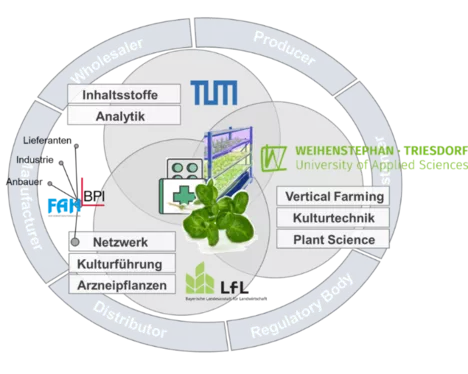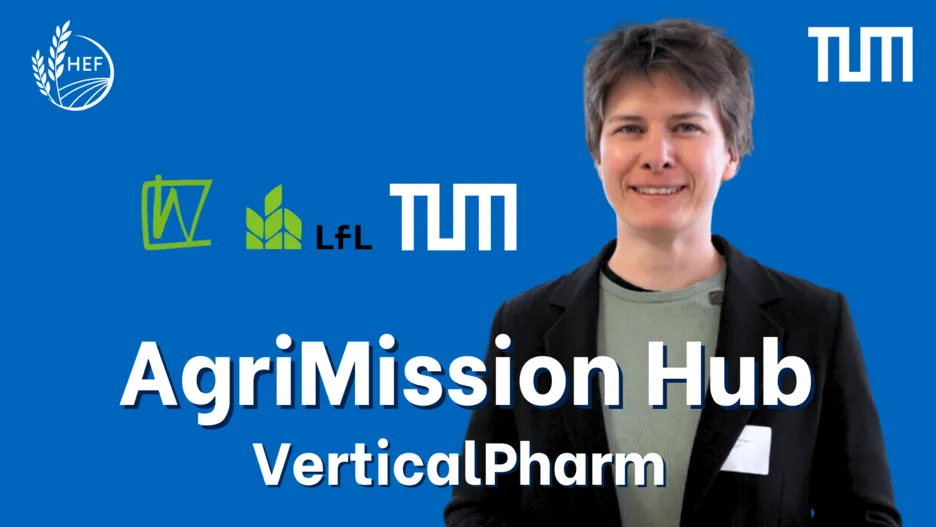VerticalPharm
Vertical Farming for Medicinal Plants

The project aims to connect the know-how of the three research institutions HSWT, LfL and TUM in a Weihenstephan research alliance in the long term in order to identify new, innovative and sustainable solutions for the production of medicinal herbal raw materials with high availability, safety and quality.
The pharmaceutical industry is facing increasing challenges in the global supply chain. In particular, the multiple use of wild collections as raw material for further processing in the pharmaceutical industry is endangering natural stocks and increasing companies' interest in relocating cultivation to industrialized countries.
Vertical Farming Systems as a Possible Solution
Due to their spatial and seasonal independence, vertical farming systems (VFS) could be a solution to the challenges in global supply chains. In addition, VFS can ensure the protection of wild stocks and residue-free production with standardized quality all year round. However, there is currently still a considerable need for research into establishing cultivation methods, specifically influencing secondary ingredients and comparing product qualities from different cultivation methods, particularly in the pharmaceutical raw materials segment. In addition, there is a lack of figures and analyses for which crops the cultivation in VFS offers economic potential in the medium term.
As part of the project funding, the potential of various medicinal plants for VFS and the requirements for VFS at the beginning of the supply chain are initially determined in a pre-competitive environment with experts from science and industry, starting with the end product. On this basis, research questions for innovative products and production processes as well as potential future markets are identified. The requirements for sustainable supply chains and the GACP guidelines (Good agricultural and collection practice (EMA 2006)) must be taken into account. By integrating associations of the phytopharmaceutical and chemical industry and their members, relevant research questions can be specifically identified and addressed, taking into account the challenges for subsequent implementation. Several model crops are used to identify the potential benefits and risks associated with the cultivation of medicinal plants in VFS with all its control options. The research project focuses on the effects of cultivation and cultivation methods in VFS on the secondary ingredients.
In cooperation with the expertise from field cultivation, VFS cultivation and complex ingredient analysis, a subsequent research project is to be prepared to investigate the range of variation of the effects on the ingredient profile of the model plants identified in the project. A publication in the Journal of Applied Research on Medicinal and Aromatic Plants on the findings from the expert interviews and the initial laboratory work, which is planned for the second year, will serve as the basis for a follow-up project to be applied for.
The funding will make an essential contribution to increasing the visibility of the location in the field of pharmaceutical raw materials production in VFS. The interdisciplinary cooperation also offers ideal conditions for further joint research activities, so that a pioneering role in the field of pharmaceuticals can be developed in VFS.
Participants: Prof. Heike Mempel (HSWT, joint project management), Sabine Wittmann (HSWT), Dr. Timo Stark (TUM), Dr. Heidi Heuberger (LfL)
Duration: 01.09.2023 - 31.08.2025
